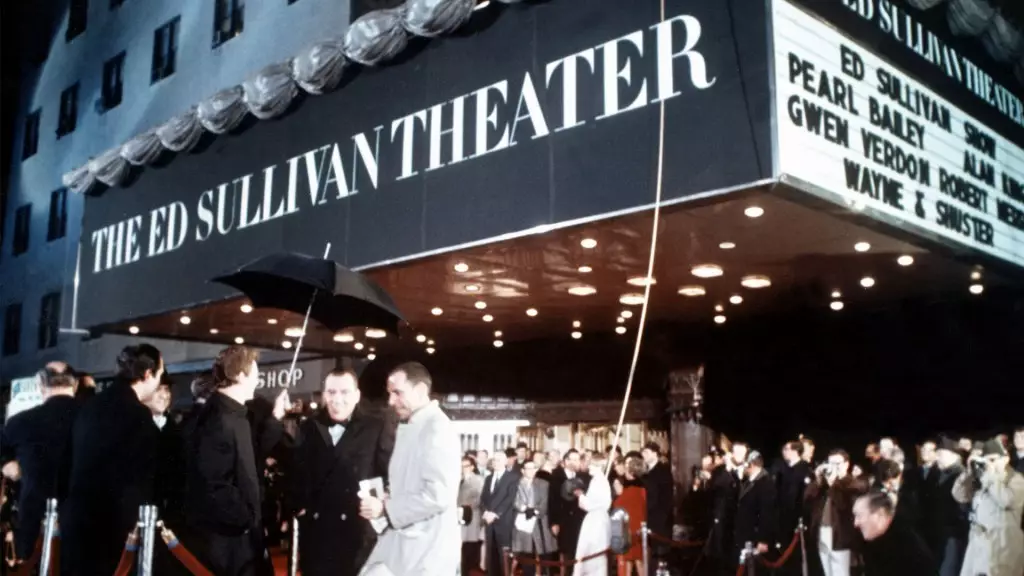Vince Calandra’s name may not be etched into the collective consciousness like The Beatles or Mick Jagger, but his influence on American pop culture and music history is indelible. As a dedicated talent booker and visionary behind some of the most pivotal moments in televised music history, his contributions exemplify the power of behind-the-scenes artistry in shaping cultural landscapes. At an age when most are still charting their careers, Calandra’s knack for recognizing extraordinary talent and understanding their cultural significance positioned him at the epicenter of mid-20th-century entertainment evolution.
His journey began humbly, yet it exemplified the relentless pursuit of excellence. Starting from the mailroom at CBS’s “The Ed Sullivan Show,” Calandra’s ascension was marked by an intuitive grasp of entertainment’s transformative power. His ability to connect diverse talents—ranging from legendary singers to groundbreaking musicians—helped elevate the show into a cultural institution, making it a gateway through which generations experienced iconic performances.
Engineering the British Invasion and Defining Music’s Golden Era
Few moments in televised history can match the electrifying atmosphere of The Beatles’ debut on “The Ed Sullivan Show” in 1964. Vince Calandra was more than just a bystander; he was an active participant in orchestrating this cultural phenomenon. His involvement extended beyond booking; during rehearsals, he donned a mop-top wig to stand in for George Harrison, a testament to his dedication and hands-on approach. The Beatles’ appearance drew over 73 million viewers—a record that speaks to the magnitude of that event—and launched the British Invasion into the American consciousness.
Calandra’s role highlights a crucial truth: history often hinges on the foresight and decisions of those behind the scenes. By recognizing the importance of these acts and ensuring they appeared on the right platform, he helped shape the trajectory of modern pop music. His work at Shea Stadium, including the legendary Beatles concert, further cements his legacy as a key architect of the era’s musical revolution.
Master of Negotiation and Catalyst for Artistic Integrity
Calandra’s influence extended into the delicate artistry of managing rock legends. His negotiations with Mick Jagger over the lyrics of “Let’s Spend the Night Together” exemplify his diplomatic skills. Delivering the message that CBS demanded a lyric change required tact, as it risked offending one of the era’s biggest stars. His work with The Doors during their controversial performance of “Light My Fire” demonstrated his capacity to handle rebellious artists while maintaining network standards—an intricate balancing act that defined much of his career.
This aspect of Calandra’s work reveals a broader insight: behind every iconic performance lies a layer of negotiation, compromise, and mutual understanding. His ability to navigate these situations with professionalism and strategic finesse ensured that groundbreaking art could flourish without alienating broadcasters or audiences.
Legacy as an Influential Connector of Culture
Beyond the legendary acts he booked, Calandra’s broader contribution is in his role as a cultural connector. He curated a diverse lineup of performers—from Frank Sinatra and Bob Dylan to Jim Henson and Irving Berlin—each contributing uniquely to America’s entertainment identity. His tenure at “The Ed Sullivan Show” exemplified a commitment to showcasing the best talent of the time, often breaking barriers of genre, style, and audience expectation.
Even after the show’s conclusion, he continued to influence television and entertainment by booking talent for various talk shows. His work underscores a simple yet profound truth: entertainment is most powerful when it unites diverse voices and perspectives. Calandra’s career serves as a testament to the notion that behind every legendary performance lies a visionary who recognizes its potential to inspire and transform society.
Reflections on an Unsung Hero
Vince Calandra’s story challenges us to reconsider the value of behind-the-scenes ingenuity. While headline acts and viral moments are celebrated, it is the strategic vision of individuals like Calandra that truly moves culture forward. His ability to foresee the significance of The Beatles’ debut, negotiate artist autonomy, and curate a lineup of unmatched talent underscores the importance of silent but powerful craftsmanship.
In an era where celebrity often overshadows contribution, Calandra’s legacy reminds us that true impact results from unwavering dedication, diplomatic skill, and an intuitive sense of cultural temperature. His death marks not just the loss of a talented individual but the end of an era characterized by meticulous artistry in entertainment production—an era where visionaries worked diligently behind the curtain to shape history itself.

